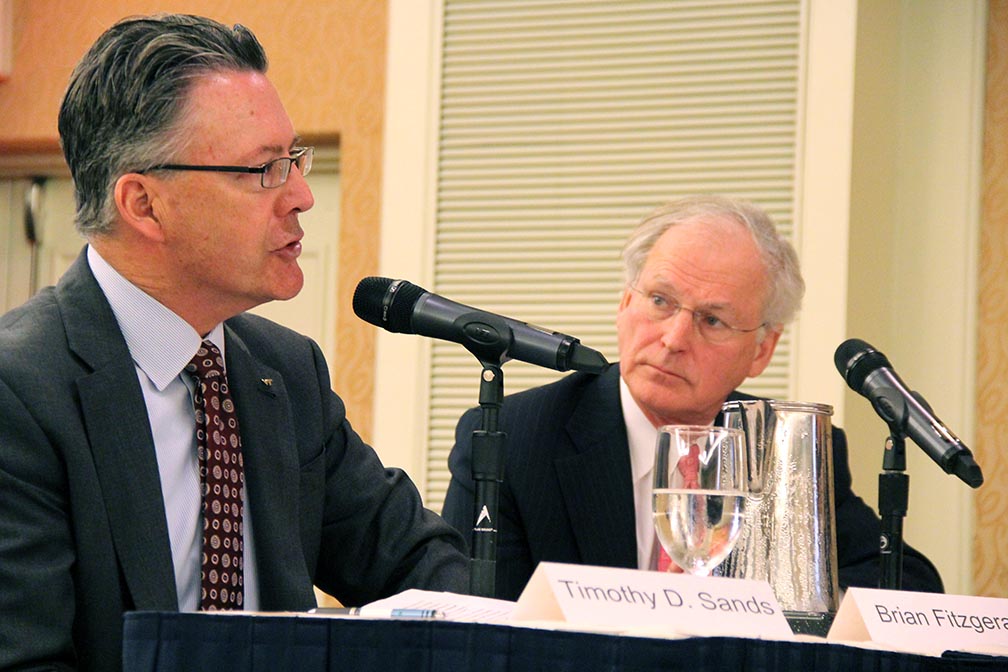Real-World Test for Beyond Boundaries
April 1, 2016

Virginia Tech received real-world feedback on its Beyond Boundaries initiative during a recent workshop – and the attractiveness of the liberal arts graduate to prospective employers emerged as a theme.
More than 140 people, including agency and industry leaders and Virginia Tech faculty, gathered in Arlington, Virginia, on March 31 to discuss Beyond Boundaries, the university’s plan for continuous innovation and the visioning process that will map out the institution’s long-range future.
A central outcome of this planning process has been the development of Destination Areas, interdisciplinary sweet spots selected for their potential to catapult Virginia Tech above its peers. The initial areas have been identified as Data and Decision Sciences, Intelligent Infrastructure and Human-Centered Communities, Integrated Security, Resilient Earth Systems, and Adaptive Brain and Behavior Across the Lifespan.
“It was gratifying to see the direction that we are moving in is aligned with how external people see the world,” said Steve McKnight, vice president of Virginia Tech’s National Capital Region and organizer of the workshop. “There is also agreement the VT-shaped student could address perceived and real gaps in the work force.”
President Tim Sands recently previewed the idea of the VT-shaped student during a keynote address at T-Summit 2016. The construct builds on the T-student concept, which combines a pillar of disciplinary depth with a broad stroke of interdisciplinary talent, and overlays it with a “V” representing the university’s Ut Prosim motto (That I May Serve) and land-grant mission to drive purpose-driven engagement.
Industry leaders alluded to the critical role the liberal arts play in ensuring the broad stroke of interdisciplinary insights.
Brian Fitzgerald, chief executive officer of the Business-Higher Education Forum, said that employers are looking for T-shaped skills.
“What everyone is chasing,” Fitzgerald said, “is the liberal arts graduate, someone who is exceptionally well rounded in a broad array of knowledge areas but also has that deep skillset in one system or one discipline. That’s the definition, really, of the T-shape.”
Fitzgerald served on the Beyond Boundaries panel along with Wayne Clough, a secretary emeritus of the Smithsonian Institution, a former president of Georgia Tech, and a former dean of the Virginia Tech College of Engineering; Lynne Doughtie, chairman and chief executive officer of KPMG; Martin Dunn, associate provost for research at the Singapore University for Technology and Design; Thanassis Rikakis, provost of Virginia Tech; and Sands.
Sands challenged the university community members to reframe their approach to their daily work. “Determine the human condition you want to change, and work backward from there. When you do that, the university takes a much different shape.”
Sands cited the example of Marc Edwards, a Virginia Tech professor of engineering, and his team for their work in helping the people of Flint, Michigan.
“Everything they did was about safe drinking water. With that goal in mind, what they had to focus on and do next became very clear,” Sands said. “Taking the same approach in everything we do will transform the university.”





